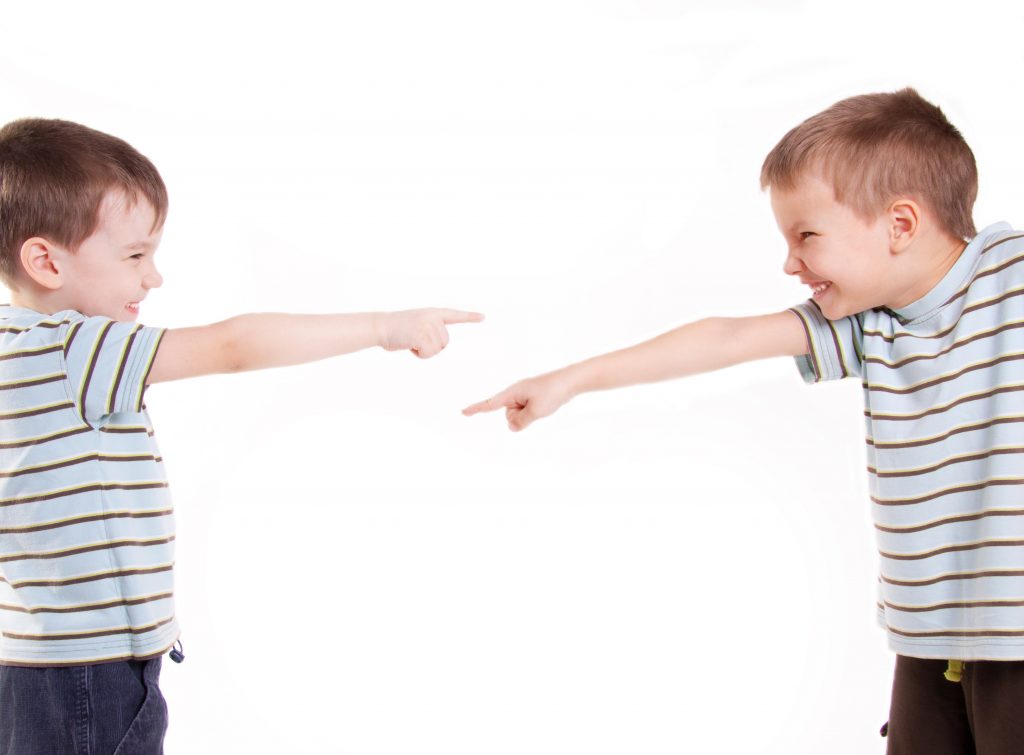
“I had it first!” “No, it’s mine!” While preschool is a time of great social growth, it frequently brings regular conflict as well. Whether your preschooler is fighting with siblings or disagreeing with friends, they are likely finding themselves at odds with others. This new dynamic is hard on parents and kids alike, but thankfully, it is also an opportunity. When conflicts arise, they are a chance to teach your preschooler essential conflict skills that they will need later in life.
Conflict Resolution Doesn’t Come Naturally
When preschoolers squabble, caregivers frequently tell them to “be nice” or “use their words.” While this advice is certainly correct, it’s important to remember that young children often don’t understand what it means. All people naturally default to defending their own point of view. Empathy, on the other hand, requires teaching and practice. To teach your preschooler conflict resolution, step into the situation and walk them through the steps to resolution. The more often you walk that path beside them, the sooner they will be able to use words to resolve conflicts on their own.
Use Your Words
The first step in preschool conflict is gently moving children from using their hands and screams to expressing themselves with words. Preschool is the time that children really become capable of identifying the different emotions inside of them. Give them labels for those feelings, such as “you feel disappointed that it isn’t your turn” or “you are sad that your friend has the toy you wanted.” Doing this presents them with a starting place for resolution. Additionally, modeling is an excellent way to teach your preschooler these labels. Simply saying, “I feel frustrated that I can’t find my keys,” gives your child a roadmap to express his or her own feelings later.
Practice, Practice, Practice
Most preschoolers love to play pretend and will even enact major scenes of conflict with stuffed animals or dolls. Take advantage of this affection for roleplay and practice conflict resolution in calm, playful moments. For example, while playing with your child, ask them what one character would do if another took their toy or spoke unkindly to them. After hearing your child’s answer, ask more questions about how to resolve the situation. Try to gently guide them toward solutions that are kind and respectful. These practice sessions may not always feel fruitful, but every time your child hears good guidance, it moves them closer to positive responses at the moment.
Have Your Own Conflict Plan
Although conflict is common for preschoolers, somehow adults are still occasionally taken by surprise when two little ones start fighting. To prevent your own poor reactions, create a script for yourself so that you respond in a helpful way. For instance, if you see conflict brewing, kneel down and gently separate the two fighting children. Then use a calm and quiet voice to make observations about the situation, such as “you look very angry” or “I can see you are upset.” Ask questions about what happened and repeat back what you hear. Once children feel heard, they often calm down and are willing to work toward a solution. Ask for suggestions on how to best resolve the situation, and try to let the children work out a resolution on their own. Once the conflict is smoothed over, offer encouragement for a job well-done.
It takes great patience to walk through these steps with young children over and over again. But as you teach your preschooler conflict skills now, you give them tools that will serve them well for a lifetime. If you are looking for childcare in a place that emphasizes learning and growing in social ability, consider Legacy Academy Satellite. Call or visit today for more information.